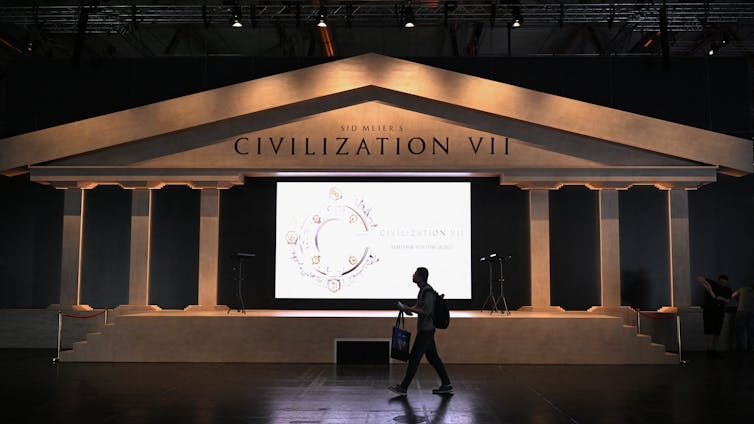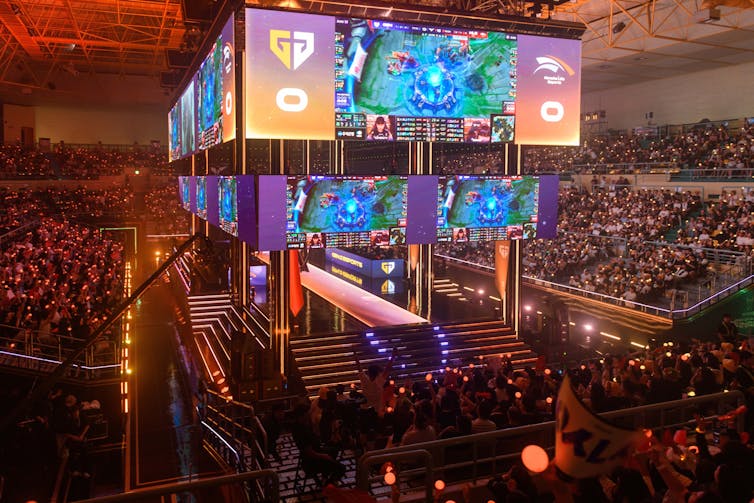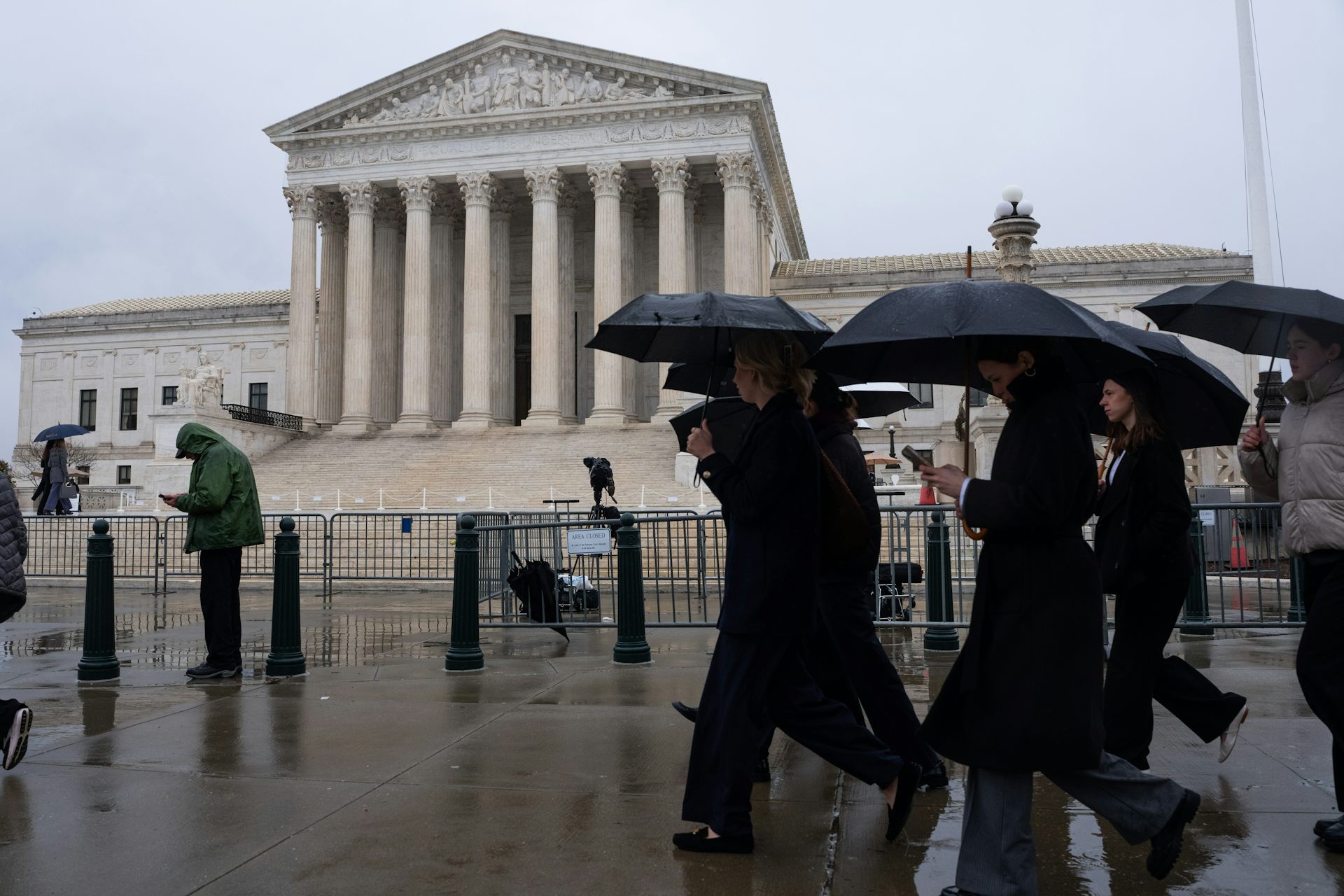Why Kissinger would have been a Fortnite champ − and other foreign policy lessons from the gaming wo
A political scientist – with a penchant for gaming – explains how Minecraft, League of Legends and Civilization VII can help teach key international relations concepts.
Charlemagne, the medieval King of the Franks, has taken control of modern-day America and is looking to expand his borders by invading your neighboring country.
Now, I’m not a historian. But the above example makes perfect sense to me as both a gamer and a professor of international relations.
It is a possible outcome in the recently released video game Civilization VII, or Civ 7, in which different historical figures can govern people far removed – both in time and geography – from their actual historical role. In this case, Charlemagne has become displeased with the little empire you control due to friction along a shared border and is likely to invade soon.
I have been an avid player of games like Civ 7 my entire life. I tend to play strategic games, be they video, card, board or role-playing games. And I’m not alone. An estimated 190.6 million people in the U.S. regularly play video games in some form.
While my primary reason for playing may be enjoyment, they also inform the discipline I teach. In fact, I just published a book, “The Gamer’s Guide to International Relations,” that explains how some of the most popular games around include lessons for people seeking to understand how diplomacy works and how different nations interact.

While Civ 7 may seek to emulate this world of conflict and cooperation, other games with no apparent connection to geopolitics can also provide lessons. In particular, Fortnite, League of Legends and Minecraft invite gamers to interact with the world in a way that models how leaders, governments and countries behave.
Here are three ways in which games create worlds that model key concepts from international relations:
1. Fortnite as realpolitik
Fortnite, a video game focused on crafting weapons and survival that launched in 2017, can be used as an introduction to the concept of realpolitik.
The core part of Fortnite is its battle-royale, third-person shooting game. In a battle royale, you are fighting against 99 other players to be the last person standing.
The “everyone for themselves” ethos can be chaotic and challenging, with death and defeat lurking in every shrub.
It brings to mind the thinking behind the international relations theory of realism. Realists see the world as anarchic, with no overarching moral or physical authority telling states what to do – in other words, one with no world government.
It is a self-help system where states survive, thrive or die based on accruing power, finding security and using force to resolve disputes.
The theory of realism hearkens back to the ancient Greek historian Thucydides, who famously noted that the “strong do what they can and the weak suffer what they must.”
That phrase has become a central tenet of foreign policy realists. Henry Kissinger, secretary of state under U.S. President Richard Nixon, saw foreign policy as a strategic enterprise based on power, while largely ignoring other imperatives such as human rights and justice.
Even in international anarchy, however, cooperation can be attractive to a realist. Kissinger, for example, sought positive relations with China and foresaw that by working with China the U.S. could exploit a growing division between the Soviet Union and China.
From Kissinger’s perspective, it mattered less that China was communist and more that it was powerful and distrustful of the Soviet Union.
How does this apply to Fortnite? Well, in the game, you may come across two players fighting. When this happens, a player must quickly decide to either retreat or join the fray. If you enter the fight, you could either team up with the weaker player and eliminate a stronger foe or join the strong and remove the weak.
In Fortnite, and occasionally in international politics, whomever you choose as your temporary ally will become your rival immediately after – so you have to choose wisely. The enemy of your enemy is not going to stay your friend forever.
LoL and enduring allies
League of Legends, known as LoL or League to fans, is a game that offers a deceptively simple idea: A team of five players battles another to destroy their base.
Mastering the game is far from simple. Along the way, you can pick up valuable international relation lessons on the importance of forging lasting alliances.

Players remain anonymous and can be pretty toxic toward each other – tending to blame a team’s failings on anyone but themselves.
If you join as a solo player, you will join four other people you do not know and spend the next 30 minutes either winning or losing a game.
You’ll build a rapport with some teammates and want to keep playing with them. Other times, you find someone who complements your skills, and you can join a ranked competition as a pair and work together toward victory.
In this, LoL is more akin to the international relations theory of liberalism. Liberalism, which should not be confused with the political identity in U.S. politics, holds realism’s view of the world to be limited. Instead, it teaches that cooperation can endure beyond pure power politics.
Instead of a temporary alliance that falls apart immediately after you achieve your goal, liberalism suggests that alliances can mutually benefit two countries in the long run.
Take for example the United States and the United Kingdom. The two countries allied during the crises of two worlds wars. By the end of World War II, they had established a long-term partnership, resulting in the establishment of international institutions that have endured for 80 years.
Liberalism argues that countries can find solutions where both sides benefit without one side being disadvantaged. This contrasts with realism’s views of the world as zero-sum – where one side benefits at the other’s expense.
Under both liberalism and League of Legends, interactions can create positive-sum outcomes for both parties.
Minecraft and constructing the world
Turning to Minecraft, one of the most popular games in the world, we find valuable lessons on a third international relations concept: constructivism.
Constructivism argues that the world is socially constructed. That is, the rules of international politics are something that humans and countries have created, chosen to abide by and are willing to enforce.
And this works well with Minecraft. People of all ages can enjoy it – but it is up to players to choose how to play. You can build houses or castles, or you can choose to find and defeat the Ender Dragon. Or you can turn on creative mode and decide to make art or large engineering projects.

The point is that it’s up to you and your friends to determine joint goals or collectively decide to pursue your own interests – and that concept is at the heart of constructivism. States can decide to create a more liberal world by jointly signing treaties or joining international organizations that alter what nations can and cannot do. Alternatively, states may see such ventures as facades and decide that the most important things are power and security. Both realist and liberal states can exist in the same world.
Like players in Minecraft, states may view the world as one where everyone is a threat, in line with realism. Or they may view the world as one where institutions and cooperation provide a better experience for everyone.
In Minecraft as in international politics, the goals, rules and punishments for those who deviate are determined collectively.
Digging deeper
Games such as Minecraft, League of Legends and Fortnite may seem to many as a pastime rather than a learning experience. But they can help people connect with concepts that attempt to explain a vast and confusing world. Being able to grasp the arcane and complicated world of international relations can make the world slightly more manageable.
Michael A. Allen does not work for, consult, own shares in or receive funding from any company or organization that would benefit from this article, and has disclosed no relevant affiliations beyond their academic appointment.
Read These Next
Supreme Court rules against Trump’s emergency tariffs – but leaves key questions unanswered
The ruling strikes down most of the Trump administration’s current tariffs, with more limited options…
After a 32-hour shift in Pittsburgh, I realized EMTs should be napping on the job
A paramedic and university professor shares data about how strategic napping could help his own health…
Trump administration axed nutrition education program that saved more money than it cost, even as go
Every dollar spent on community health education through SNAP-ED saved an estimated $10.64 in Medicaid…






